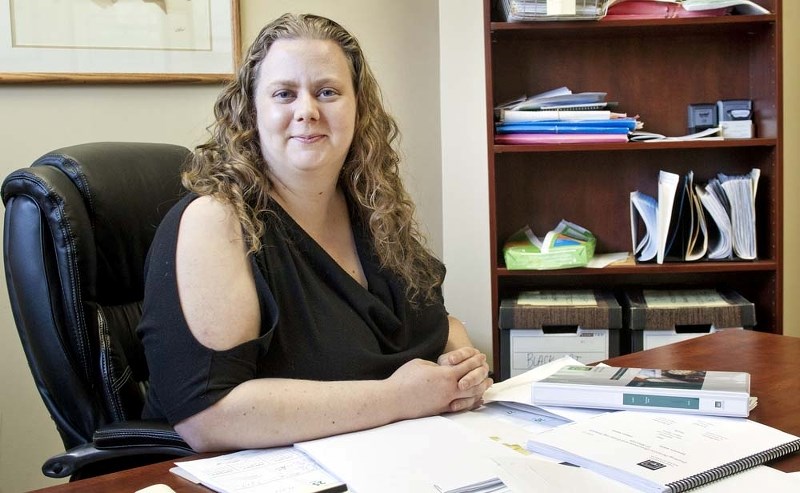A personal directive is one of the most vital legal documents you can have, says a local lawyer.
“Of all the documents the personal directive is probably the most important one,” said Sarah Moore, a lawyer with Gaffney McGreer Rowand, said of legal documents like wills, personal directives and power of attorney.
“The power of attorney and personal directive, in particular, everyone should have. Which is not to say the will isn’t important, but if you don’t have a lot of assets when you’re younger it’s not as difficult to deal with your estate.”
Moore says anyone who’s 18 or older should consider having a personal directive made. Personal directives appoint an agent to make health-care related decisions for you if you’re deemed to not have capacity to decide for yourself.
“The agent is the one who stands in your place and communicates your wishes for you,” Moore said.
Personal directives shouldn’t be confused with power of attorney. While both appoint an agent for you when you lack capacity, personal directives look after health care, accommodations, who you associate with, participation in social, education and employment and legal matters that don’t relate to the estate. Power of attorneys look after the estate and finances.
Usually, a personal directive stays pretty general, but Moore said they can also be specific if the client desires or is dealing with a particular situation, like heading in for major surgery.
“It’s easier to have it more general,” she said.
It’s important to think about your values, especially as they regard end-of-life decisions, when drafting your directive. Moore said to also think about and have a discussion with the person you plan to appoint as an agent.
The personal directive is helpful for both you and your family, Moore said.
“It’s a bit of both. It’s for the patient so their wishes are respected … but at the same time, there’s certainly benefits to the family that’s trying to make that decision because they have in writing a general statement at the very least about what they would have wanted,” Moore said. “It just reaffirms that that’s the right decision to make.”
After getting a personal directive done, Moore suggests reviewing it every five years or so and considering if any changes need to be made when hitting life changing events like marriages or death.
It also will make things easier for family members to be your agent, avoiding the need to go through the process of being appointed guardian or trustee.
“The reason it’s important to do is because without the personal directive nobody actually has the right to say you should discontinue care,” Moore said.
The personal directive can also dictate if more than one doctor’s opinion is needed to have you deemed as incapable of making your own decisions. While many want to appoint their family doctor, Moore said physicians she’s talked to suggest avoiding a specific name in case that person is unavailable.
“It’s the kind of document you want to make so it can last for 50 years,” Moore said.
Albertans don’t even need a lawyer to make a personal directive, though Moore noted using the form provided by Service Alberta means not receiving personal tailored advice one would get if using a lawyer.
“If it’s doing the form or doing nothing, the form is the better way to go,” Moore said.
There are some other local resources for seniors who are looking for information as well.
“Anybody needing assistance with putting together information on personal directives can call the 50+ Club and request a confidential appointment with one of our full-time seniors services co-ordinators,” said Val Niblock, executive director of the 50+ Club.




